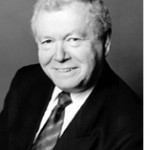By Rabbi Dow Marmur

JERUSALEM — The important distinction made by the late Rabbi Joseph Soloveitchik, the most significant contemporary exponent of modern Orthodox Judaism, between the covenant of fate and the covenant of destiny has important ramifications beyond Jewish theology.
The covenant of fate is rooted in the paradigmatic experience of Egyptian bondage and re-enacted annually by Jews at the Pesach Seder. The covenant of destiny is manifest in receiving the Torah at Sinai, celebrated on the Festival of Shavuot. As we’re now in the period between the two festivals, there’s an added reason to reflect on the two covenants.
In his new book On Betrayal, the Jewish philosopher Avishai Margalit, known to the wider international public also through his articles in the New York Review of Books, has this to say on Soloveitchik’s two covenants (p.262f):
“Fate is an inert mode of human existence in which an individual or a group is a passive object affected by outside forces – usually adverse ones. Destiny is an active mode of human existence in which an individual or a group tries to shape its life in the face of forces acting on it. Destiny has the meaning of calling or vocation, in contrast to the fatalism of fate. Fate is thrust on the individual or the group; destiny involves choice.”
Contemporary Judaism is familiar with both. We commemorate our fate by remembering the Holocaust and we respond to it with, “Never Again” in Zionism. For many Jews, the Egypt of our time is Auschwitz; the Sinai of our time is Israel. A full Jewish life means both remembering and anticipating.
It’s difficult. That’s why in the early years of Israel not enough was done to remember the Holocaust and honor its survivors. Mercifully, a wholesome balance prevails in the Jewish state today. It’s less clear that the same balance exists in the Diaspora.
Judging by the many e-mails that well-meaning friends and acquaintances abroad send me, it seems that they only affirm the covenant of fate. They reasonably and justifiably record and react against the many manifestations of anti-Semitism today. Even when they express their commitment to the State of Israel, it’s often in connection with reacting against its detractors. To insulate themselves against experiencing the excitement and the glory of contemporary Israel and its aim to return to Sinai – not by imitating the East European shtetl of old but by experiencing what’s new and exciting – most of my correspondents stay away from Israel by hibernating in Florida.
They thus deprive themselves of experiencing the renewal of the covenant of destiny that in no way ignores the covenant of fate. It embraces the history of the Diaspora yet goes beyond it in affirming the covenant of destiny. Abraham Isaac Kook, Israel’s first chief rabbi, put the challenge succinctly decades before it could be realized in the State of Israel: to renew (lechadesh) the old and to sanctify (lekadesh) the new.
Israel is vital for Jewish existence not only because it remembers the Jewish past – the pain no less than the glory – but also because it looks to the future: the glory despite the pain. To be a Zionist is, in characteristic Jewish fashion, to cry with one eye but to smile broadly with the other.
*
Rabbi Marmur is spiritual leader emeritus of Holy Blossom Temple in Toronto. Now residing in Israel, he may be contacted via dow.marmur@sdjewishworld.com